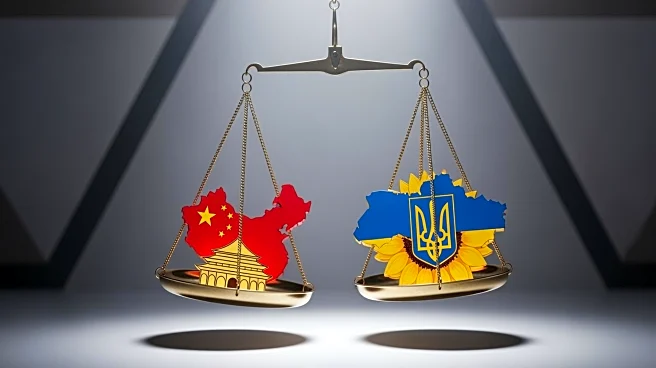What's Happening?
China has responded to criticism from Ukrainian President Volodymyr Zelensky regarding its support for Russia amid the ongoing conflict. Zelensky accused China of aiding Russia and not supporting Ukraine, highlighting a lack of dialogue between Kyiv and Chinese
President Xi Jinping. In response, Chinese Foreign Ministry spokesperson Guo Jiakun emphasized China's commitment to promoting peace and dialogue, stating that China decides its position based on the merits of the situation. Despite claiming neutrality, China has been a significant economic partner for Russia, especially under international sanctions, with increased bilateral trade and military cooperation.
Why It's Important?
China's role in the Russia-Ukraine conflict is significant due to its economic and political influence. By maintaining strong ties with Russia, China provides an economic lifeline that helps sustain Russia's economy amidst sanctions. This relationship complicates international efforts to isolate Russia and could potentially prolong the conflict. The criticism from Ukraine and the subsequent response from China highlight the geopolitical tensions and the challenges faced by Western allies in addressing the conflict. The situation underscores the complex dynamics of international relations and the strategic interests of major global powers.
What's Next?
The European Union has added two major Chinese oil companies, PetroChina and Chinoil Hong Kong, to its sanctions list, accusing them of enabling Russia's revenue streams. This move is likely to strain EU-China relations further. China's Commerce Ministry has warned of taking 'resolute steps' to protect its companies' interests, indicating potential retaliatory measures. The ongoing developments suggest a possible escalation in economic and diplomatic tensions between China and Western nations, which could impact global trade and political alliances.















